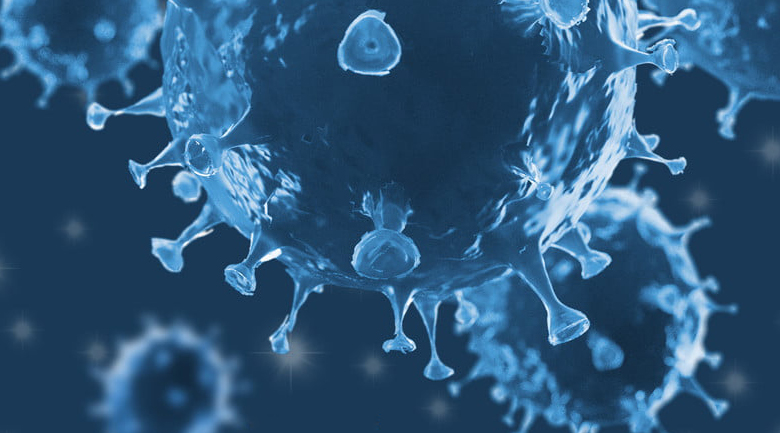
New results from the CAPTURE study, looking at how cancer patients respond to COVID-19 vaccines, were published last week.
Encouragingly the latest results suggest that for people with solid tumours, the detectable antibody response to the initial virus, and Beta and Delta variants, increased after a third dose, including in most of those who didn’t develop a response to the Delta variant after the first two doses of vaccine.
People with blood cancer who had a response after two doses also had a better response against all variants after their third dose.
However, in people with blood cancer who did not have a detectable response against the Delta variant after two doses, almost half still had no detectable antibody response against Delta and Beta variants after the third dose of the vaccine.
This follows previous results from the CAPTURE study, which suggested that people with blood cancer showed a poorer immune response to the first two doses of a COVID-19 vaccine compared to people with solid tumours.
This study also looked at the T cell response in a subset of patients and found that this was boosted after a third dose in both people with solid tumours and blood cancers, potentially offering additional protection. T cells are a type of white blood cell which play a key role as part of our immune system in killing virus infected cells.
The CAPTURE study is contributing to a growing picture on the effectiveness of COVID-19 vaccines are for people with cancer.
With the full picture still emerging, we’d recommend that anyone undergoing cancer treatment continues to follow the recommendations of their doctors and specialists. And we encourage all who have been offered the vaccine to take it.
10 December – New COVID-19 treatments to be offered to most at-risk groups in the UK
This week, the Government announced that thousands of the most vulnerable people in the UK will have access to life-saving, innovative antiviral and antibody treatments. Two new treatments, molnupiravir and Ronapreve, have recently been approved for non-hospitalised adults with mild to moderate COVID-19 based on clinical trial evidence showing they reduce the risk hospitalisation or death.
A national study called PANORAMIC, run by the University of Oxford in close collaboration with GP hubs, will recruit around 10,000 UK patients who are at risk of severe cases of the virus. Participants will have the opportunity to take the treatment molnupiravir at home after receiving a positive PCR test.
If eligible, you will be contacted by the study team or a healthcare professional following your positive PCR test. Alternatively, if you wish to sign up as a participant, PANORAMIC will be recruiting through its website.
While this study is needed to provide more evidence, people who are at high risk from COVID-19, or who may be less protected by vaccination won’t have to wait to access this, or another new innovative treatment for COVID-19. Those at highest risk who test positive for COVID-19, which includes cancer patients and people who have compromised immune systems, will also be able to access either molnupiravir or the novel monoclonal antibody Ronapreve outside of the study from next week (16 December 2021).
People who are eligible will be contacted by the NHS. You can find more detail about who is eligible on the NHS website. If you feel that you may be eligible to take part, but haven’t received a letter, you can contact your GP or consultant. Your GP will make an assessment of any conditions you may have, and if you are eligible, they will issue you with a copy of the letter to provide further information on the next steps.
6 December – JCVI updated advice on vaccine response to Omicron variant:
It’s still not clear how much protection current COVID-19 vaccines will provide against the Omicron variant. Lab studies have suggested that high levels of antibody after COVID-19 vaccination – which is designed to protect against the original or ‘wild-type’ virus – gives protection against other variants. Studies are underway to assess whether this is also true for the Omicron variant.
On Monday the government accepted updated advice from the Joint Committee on Vaccination and Immunisation (JCVI) on immediate measures to be taken within the COVID-19 vaccine programmes, including:
Those eligible for the booster vaccine should be expanded to include all adults aged 18 years to 39 years old.
Booster vaccination should now be offered in order of descending age groups, with priority given to the vaccination of older adults and those in a COVID-19 at-risk group. Booster vaccination should only be given from 3 months after the completion of the primary course.
Severely immunosuppressed individuals who have completed their primary course (all 3 doses) should be offered a booster dose a minimum of 3 months after their third primary dose. Anyone who hasn’t yet received their third primary dose should be given it now to avoid further delay. A further booster dose can be given in 3 months, in line with the clinical advice on optimal timing.
People who are considered severely immunosuppressed include those who have had, or currently have, blood cancer, or those who have a weakened immune system due to a treatment (such as steroid medicine, biological therapy, chemotherapy or radiotherapy).
